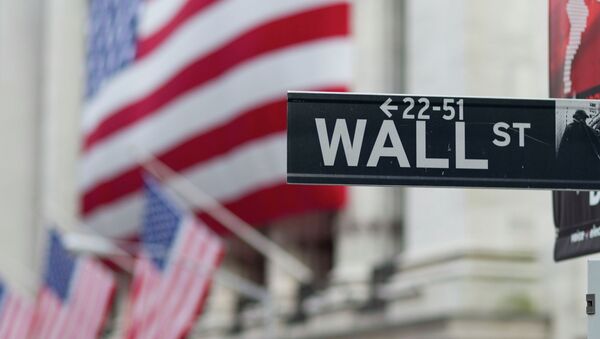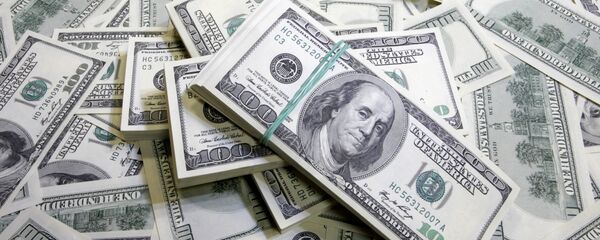Yet, gains in stocks were only partially driven by the improved investors’ sentiment over an allegedly brightening outlook. There are two main reasons for gains in shares: the US Federal Reserve’s recent decision to hold rates steady, thus boosting investors’ appetite for riskier high-yield assets, and stock buybacks, announced or commenced in the banking sector.
Major US banks, including JPMorgan Chase & Co. and Bank of America, are facing deepening declines in operational earnings due to shrinking trading and overseas revenues. Declining commercial profits are the worst thing affecting a company’s stock market performance. The US financials posted some 22% capital erasure off their stocks during the past year, however, the Fed’s most recent decision on rates provided an opportunity to reverse this trend, and the banks could not miss such a chance.
"There's been some nervousness taken out of the market by the Fed making their comments," Gary Bradshaw of the Dallas-based Hodges Funds said.
JPMorgan announced on Friday it would repurchase some $1.88 bln worth of its own stock between now and June, effectively pushing the value of its shares up 3.8%, the greatest in over two weeks. Further buybacks will also be reflecting positively on the stock value, potentially allowing the bank to erase its yearly losses.
In a similar manner, Bank of America said Friday its board of directors agreed to buy back some $800 mln worth of the bank’s own stock, resulting in BofA shares gaining 3.6%. The broader bank sector index KBW added 2.43%.
During the past year before Friday, JPMorgan had lost 11% its stock value, BofA had suffered a 20% decline. That said, bank shares are now way cheaper than at any moment during the past several years, meaning now is also the right moment to overcome some excessive dilution in bank stocks, consolidating assets under a stricter corporate control. Shares dilution typically means a greater market volatility, and the banks, once bitten this January in the ‘bloodbath of red’, are twice shy before the Fed’s June rate hike.
Meanwhile, the US market regulators did not object the biggest US banks returning money to shareholders, although such massive buyback deals are usually subject to thorough scrutiny. Excessive concentration of shares is a potentially destabilizing factor to the markets, as a sudden voluntary sell-off may capsize the entire banking sector at once.
"There is a flexibility on the part of the regulators to listen to capital requests when things turn out better than expected," Charles Peabody of the New York-based Portales Partners LLC said.
The buyback deals, aside of improving Wall Street performance, are also an indication that despite the shrinking revenues, the banks still have enough capital to finance such ambitious ventures, effectively boosting market confidence of the entire financial sector. The Q1 earnings results will be a disappointment, so corporations are getting prepared.



